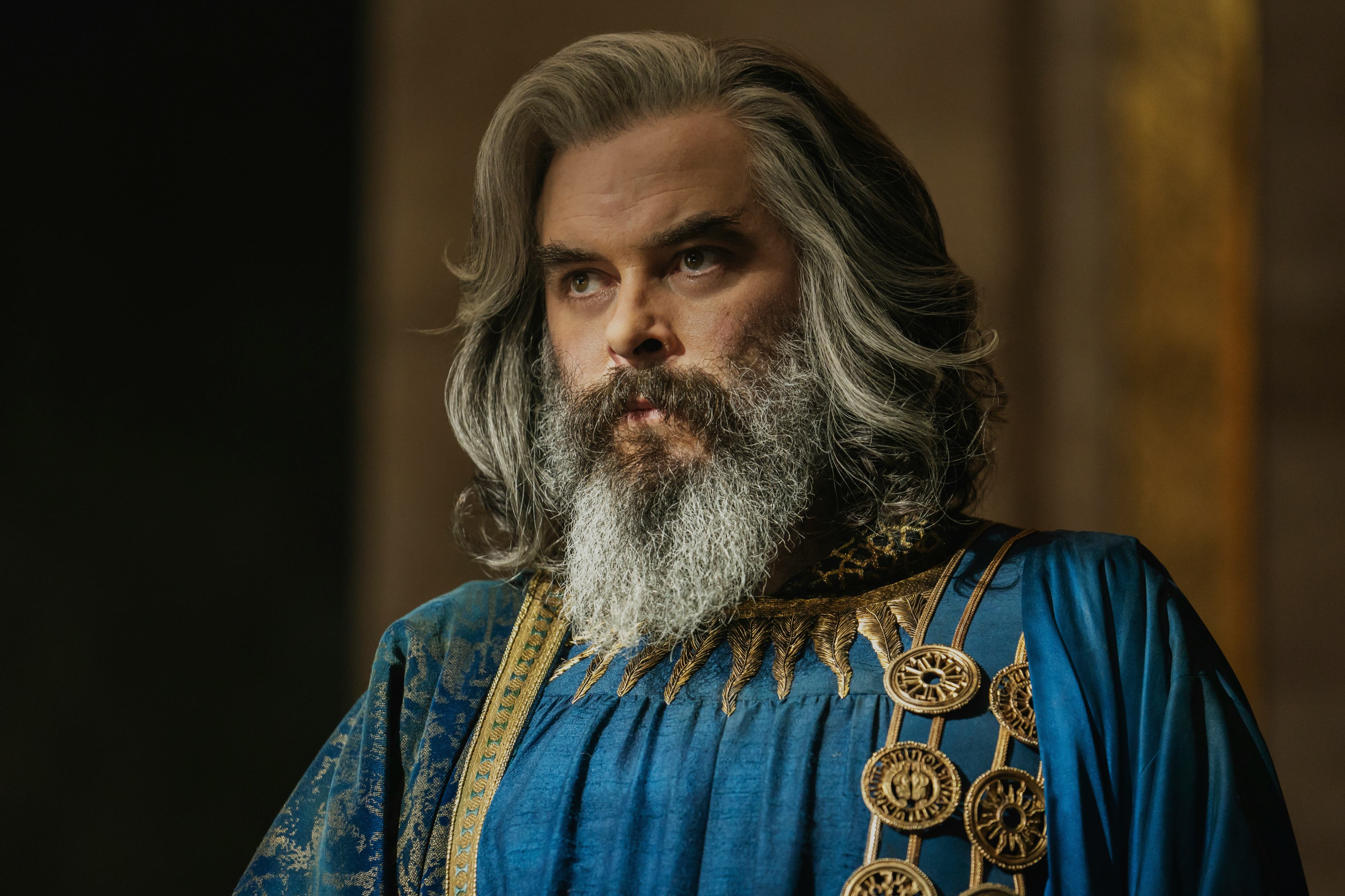
In J.R.R. Tolkien’s written version of Middle-earth, the major events of the Second Age all take place over several thousand years. In The Lord of the Rings: The Rings of Power, however, the biggest moments are going to unfold in far quicker succession. As a result, The Rings of Power will be able to ditch the multiple time jumps it might have otherwise had to work into its structure.
But by only letting viewers see a portion of the Second Age, The Rings of Power is also running the risk of lessening the impact of some of its major conflicts. Specifically, the series’ exploration of Númenor may feel far less expansive and tragic than it should.
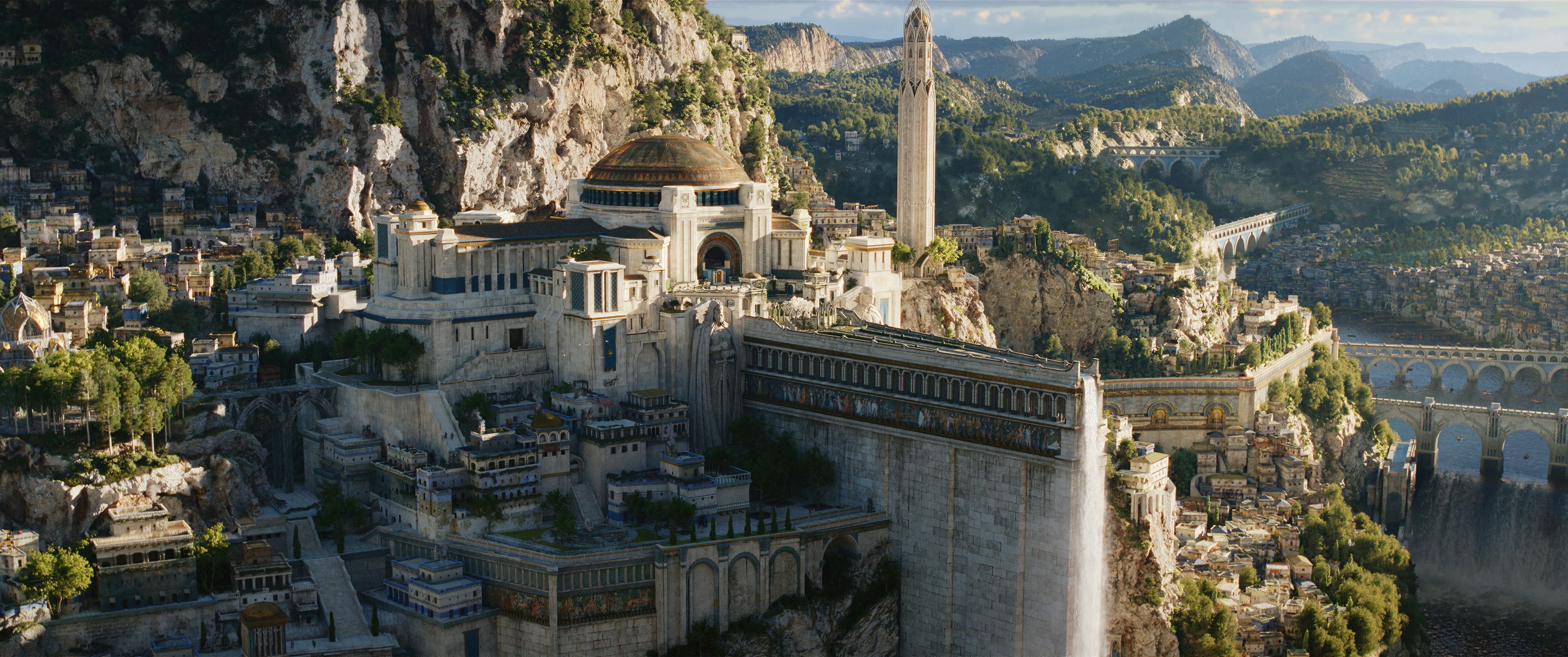
Compressing the Timeline — In Tolkien’s books, Númenor is a great island kingdom that’s gifted to the Men of Middle-earth by the Valar, essentially the angels of Tolkien’s world, at the end of the First Age. The island is raised from the sea by the Valar on the condition that the Númenoreans who live there never sail so far westward that they lose sight of the island, or attempt to reach the Undying Lands. For most of Númenor’s rule, that condition is accepted.
But while the Númenoreans all live much longer lives than most of the Men of Middle-earth, they’re all still fated to eventually die. Over several thousand years, some factions begin to grow resentful of their mortality and envious of the Elves’ unlimited lifespans. It’s this resentment that Sauron uses to his advantage, which leads to the downfall of Númenor near the end of the Second Age.
In other words, it’s time — both the passing of it and the fear of it — that destroys Númenor, and that’s why The Rings of Power’s decision to compress the Second Age’s story is so risky.
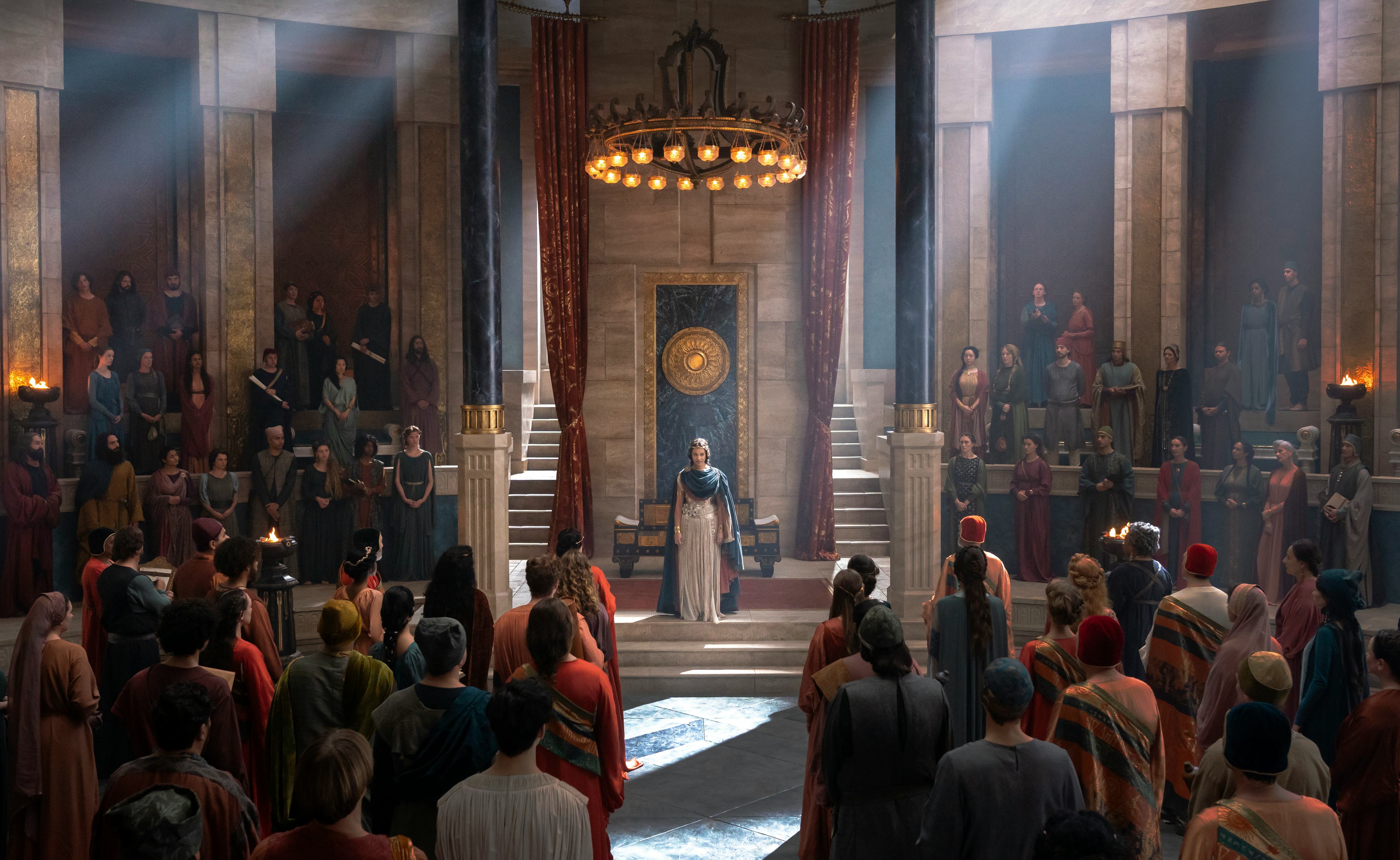
The Fall of Númenor — In Tolkien’s written work, readers are given the chance to learn about the various kings of Númenor and how each of them impacted their kingdom’s culture. That means fans are also given the chance to see just how slowly but surely the Númenoreans’ desire for immortality corrupts them from within.
By the time Sauron gets the opportunity to manipulate the Númenoreans, they’re already spiraling down a path of madness and ambition. In The Rings of Power, however, many of the Númenoreans who are only alive during the kingdom’s final years will already be present when the series begins and, therefore, before the Rings of Power have been forged or the War of the Elves and Sauron has unfolded.
That means viewers likely won’t see the same kind of slow corruption of Númenor that Tolkien originally detailed. Instead, the kingdom will likely already be on the path toward its own downfall by the time The Rings of Power begins.
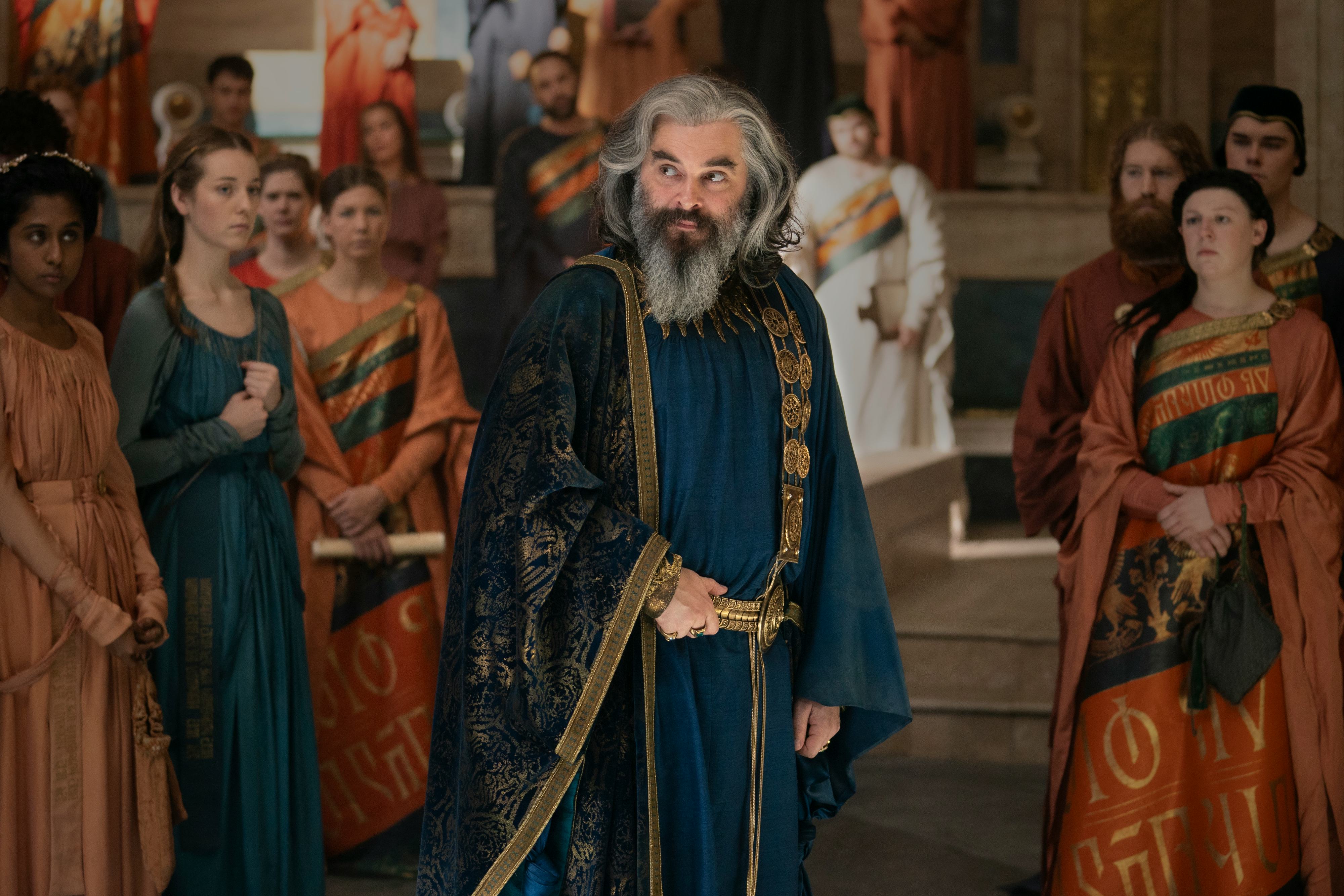
Therefore, the responsibility to communicate the weight and tragedy of Númenor’s destruction will likely fall on the shoulders of one character in The Rings of Power more than any other, and that’s Ar-Pharazôn (Trystan Gravelle).
On the page, Ar-Pharazôn is an accomplished but arrogant warrior who takes the Númenorean throne through brute force and dastardly manipulation. He’s the most ambitious of the Númenoreans, but also the most fearful and insecure. It’s Ar-Pharazôn’s fear of old age and death, fears he also stokes in the hearts of his subjects, that lead Númenor past the point of no return.
If The Rings of Power wants to effectively depict Númenor’s destruction, it’s going to have to extensively explore the psyche and fears of its last king. Fortunately, there are reasons to believe he’ll be one of the story’s central figures.
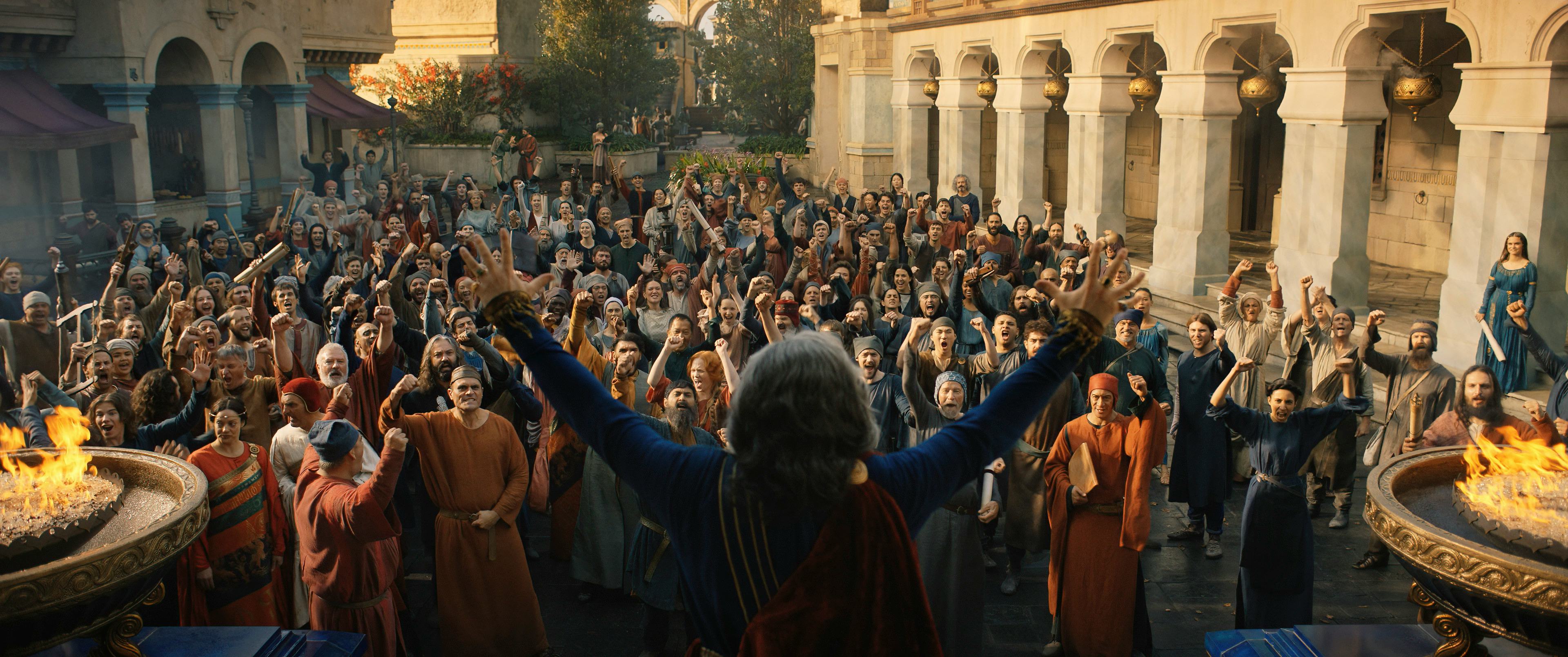
The Inverse Analysis — When The Rings of Power begins, Pharazôn will not be the ruling king of Númenor. Instead, he’s going to be a trusted advisor to the nation’s queen regent, Míriel (Cynthia Addai-Robinson). That detail, combined with all the gray in his hair, suggests that The Rings of Power may still be able to pull off Pharazôn’s rise to power, while also establishing the fear of death that leads to his downfall.
Early details have also suggested that Pharazôn will already be the de facto leader of a troublesome faction of Númenoreans by the time The Rings of Power begins. It seems likely that the version of Númenor viewers meet for the first time in the Amazon series will be one that’s already teetering on the brink of spiritual and ideological destruction. If that’s the case, then it’s possible Rings of Power viewers may not get to experience or understand the full scope of the tragedy of Númenor.
The Rings of Power will have to ride a very difficult line if it’s going to both compress the timeline of the Second Age and tell the story of how Númenor crumbled from within.
The Lord of the Rings: The Rings of Power premieres Friday, September 2 on Prime Video.







